In the spring of 2017, several faith-based service year programs sponsored a speakers series: “Calling, Service, and Justice: Stories of Spiritual Entrepreneurs.” Speakers from the Washington, D.C. area reflected on their journeys inward to face questions, doubts, and fears - and to receive grace and insight - about calling and action that honors self, community, and world.
Some highlights:
Gail Taylor, founder of Three Part Harmony Farm, talked about having a bi-vocational identity that allows her to pursue and support her dream. She is a farmer and yoga teacher who uses advocacy skills from a former life to make her vision a reality! Those came in handy when she worked with D.C. Council members to draft and pass legislation allowing her farm to exist on monastery land without jeopardizing its nonprofit status.
She shared how formative her role in a small, ecumenical, lay-led church community that empowers people to envision has been. Moreover, she reflected on re-understanding scripture after working the earth for a while. In addition to support from spouse and church, an accountability group kept her focused and helped her act.
Bill Haley, executive director of Coracle, shared many risks of saying yes to his calling. That calling required him to give everything up, commit career suicide, and jump off a cliff. He needed “a God moment” to realize that his resume is inconsequential and that God knows best how to use his life.
He learned that lesson in leaving a ministry in inner city D.C. to relocate to rural Virginia. In the process of moving toward a new ministry, he kept asking God: “But what about justice?” He got his answer when discovering a slave cemetery on the property they bought.
Bill has been formed by Gordon and Mary Cosby’s understanding of calling as: 1) transcendent, coming from otherness, and being nothing we can dream ourselves; 2) meeting a need; 3) simple (e.g. there is a need for housing); 4) persistent and gnawing; and 5) impossible (without God). To the question of how we know where to serve, he answers: cultivate empathy and it will show you who you need to be with, where, and how.
Adam Taylor, lead for faith-based initiatives at The World Bank, attempted climbing Mount Kilimanjaro in three days (versus the five recommended) to get an answer about calling from God. At one point, because he was going too fast and pushing himself too hard, he collapsed and was unconscious - if not gone - for a while. During that time he remembers a fuzzy conversation with God in which God said: “You take yourself too seriously. The answer you seek has been within you all along.” Adam woke with a sense of peace and focus.
Along his journey, he has learned: 1) Calling is like spiritual GPS. If you are off, you’ll be rerouted; 2) Justice is not about ideology. It is about restoring right relationship and a lifestyle that pursues that; 3) To embrace a more holistic Jesus. He tries to avoid following George Bernard Shaw’s observation that “God made us in God’s image. We returned the favor;” 4) "To whom much is given, much is expected" is true. This helps prevent him from taking shortcuts; and 5) Kairos time can be triggered by egregious situations and actions. We must be aware of those moments and how they empower us.
And, for you movie fans, he thinks we all have Matrix moments where we have to choose the red or blue pill: to truly know and experience, or ignore and escape.
Becca Stelle, with Becoming Church and the Church of Christ, Right Now, was catapulted into questions of faith in her twenties when she spent several months with a close friend whose husband died suddenly. She realized that her seminary training could not make things better. She was wholly unprepared. In that time, she began to hear Jesus differently. She started to ask what it meant to really follow Jesus. She realized that Jesus is always at the margins - not front and center. She later left the traditional church when her parish did not want to spend time with that reality.
Years later, a meeting with Gordon Cosby robbed her of the excuse that no one out there shared her passion. She recognized that she wanted to be under the spiritual leadership of those who had been to hell and back. Becca’s friend who lost her husband had been her first teacher. Now the homeless, addicted, and incarcerated would teach her.
The small church model she now works with is based on the 12 step model. It maintains that all of us are addicted to a crazy society, and that our “us vs. them” mentality is part of that addiction. It offers space for deep sharing across what are usually social and class divisions. It stresses being known as deeply as possible - but not trying to fix each other. The Church of Christ, Right Now is called to relationship with the formerly incarcerated. The church even owns stock in the Corrections Corporation of America (private prison industry) so that it can attend board meetings and try to influence the leadership.
—
Something above grab you? Show up where these leaders are and explore why! And keep an eye out for future events on calling.

